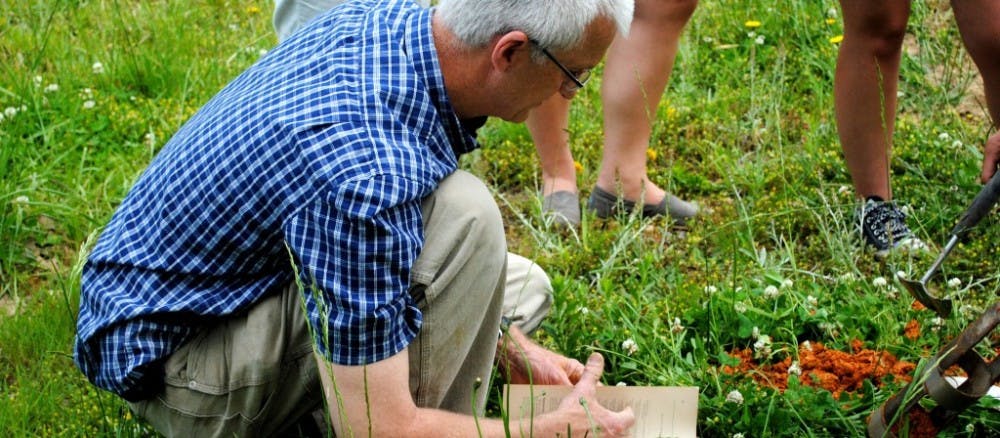The demand for food is expected to double by 2050, according to Jerry Dorsett, adjunct instructor of environmental studies at Elon University, and the need for sustainable agriculture is going to grow with it.
In North Carolina, agriculture is the largest industry, accounting for $70 billion of the state's economy, according to Dorsett. He also said 17 percent of North Carolina jobs are in the production of food and 80 different agricultural commodities are produced.
For Dorsett, choosing to teach students about the industry was a no-brainer. He decided to lead Community Agriculture: Spring Planting to bring the social, economic and scientific aspects of farming to those who don’t know much about it.
“Most of the students who take my classes tell me that they love to eat, but understand little about where their food comes from,” Dorsett said.
But, some students enroll in the class with an established interest in agriculture.
“I’m very interested in the organic food movement and I wanted to see exactly where the food comes from,” junior Mary Schwarzwaelder said. “I became interested when I watched 'Food Inc.' and this class seemed like a good fit.”
Dorsett focuses the course on sustainable planting and the importance of farms. The semester’s major project involves designing a garden for a family of four using sustainable practices. The students learn about crop rotation, seed planting and other guidelines.
He often finds that this is the first exposure some students have to the farming process.
“At the beginning of each semester, I survey the students in each class to determine their knowledge and interest in agriculture,” he said. “At the end of each semester I survey again, and most students communicate a better understanding and appreciation for agriculture.”
[quote]Most of the students who take my classes tell me that they love to eat, but understand little about where their food comes from. -Jerry Dorsett, adjunct instructor of environmental studies[/quote] Sophomore Diandra Verbeyst is one of those students. She said she learned a lot in the course that relates to her interest in agriculture, but also her career plans in marine resource management.
“Even though this class focuses just on gardening techniques, it's nice to learn about gardening food production,” she said. “I can use the information we learn on field trips to compare to other situations.”
Field trips to nearby farms and food markets take place every Friday. In addition, the class works on Loy Farm, located near South campus, on Wednesdays.
For many students, the interactive experience is what drew them to the course.
“I took it because I’m an especially active person, and I knew the class would involve extending beyond the information we’ve learned in the classroom and we’ll actually be able to put our planning for gardens into action,” Verbeyst said.
Learning about agriculture far surpasses academic importance. With the increase in food demand there is likely to be a greater need for small farms.
“Food production doesn’t meet the population rate that our world is growing at,” Verbeyst said. “I’m trying to learn how to make my life more sustainable so I influence those around me once I get into the real world.”
This sort of empowerment is exactly what Dorsett said he is hoping for.
“My approach as an instructor is to create a learning atmosphere that is both challenging and enjoyable, with the goal of changing student thinking,” he said. “I wish all students at Elon University had the opportunity to learn about the basics of agriculture and to appreciate its role in maintaining this state as a beautiful place to work, live and vacation.”


